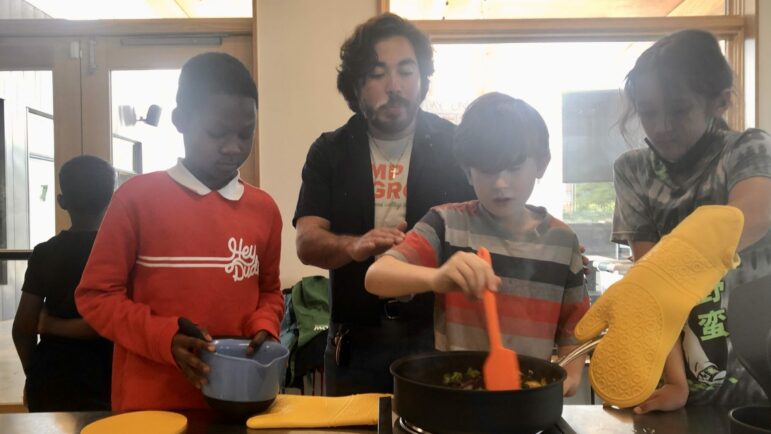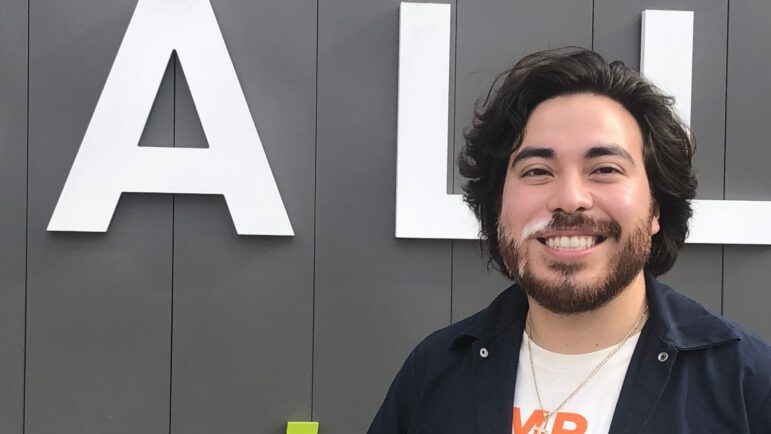This story is component of an occasional collection known as Excess Credit history which shares the tales of non-traditional educators in Birmingham.
In Fernando Colunga’s class, cooking is often the action of decision. When the 26-yr-outdated instructor announces it is time to transfer to the kitchen area, all the children in his class cheer and scramble to get in line at the classroom doorway.
In the newly renovated kitchen area at Jones Valley Teaching Farm, a nonprofit in Birmingham that teaches youngsters about meals and farming, students chop kale and cabbage, saute broccoli and onions, and pour in a savory sauce for a vegetable stir-fry that is been handmade and homegrown by 10-year-olds.
Colunga said it is throughout pursuits like this one particular, when the little ones get their arms dirty, when they understand the most.
“A large amount of the modify and a lot of the expansion doesn’t always happen when I’m in front of the class educating about photosynthesis,” Colunga mentioned. “It comes about when I’m subsequent to them chopping, when we’re out on the subject, harvesting, weeding.”
Identified as “Farmer Fern” to his students, Colunga started doing work at the teaching farm five years in the past aftering volunteering for a few of semesters in college. The time used growing food and cooking in the kitchen turned into a whole-time enthusiasm for training about the significance of foodstuff to younger persons.
“A whole lot of them imagine of foodstuff as a thing just vital, not necessarily anything enjoyable or one thing new,” he said. “So when you get to open up up the globe of food stuff, the planet of expanding food items, the entire world of cooking your very own food items to college students and viewing that spark in their eye is just outstanding.”

“Kids of shade are the kinds who are impacted the most with food stuff inequality”
He explained it’s his mission to introduce young ones to all varieties of fruits and vegetables—and not just mainly because he likes cooking, but mainly because he feels his do the job is assisting to handle the root bring about of systemic problems in obtain to healthy foodstuff, in particular in Birmingham
“Kids of color are the kinds who are impacted the most with foods inequality,” Colunga said. “So teaching pupils about food stuff and letting them kind of realize and see where by their food items comes from permits them to be empowered and just take management of overall health selections down the street.”
He explained having manage more than your body via the foods you eat is the initially stage in combating systemic issues in foods inequality. In accordance to the United States Office of Agriculture about 70% of Birmingham people dwell in an spot the place it’s tricky to get economical and high-quality meals. Neighborhood gardens like Jones Valley enable handle this challenge, but Colunga mentioned it’s not just about how the food stuff is grown. It’s also exactly where it arrives from.
“Giving credit rating in which credit rating is due”
“I’ve been attempting to be seriously intentional about speaking about the origin of all of our foods, the origin of our vegetables—where this meal culturally will come from,” Colunga said. “So giving credit rating in which credit is thanks. So learners can see, ‘Wow, like this will come from all more than the position. Permit me be a lot more open up to those people cultures.’”
Colunga is aware of about doing work throughout cultures. He was born in Mexico and came to the U.S. as a smaller child. He mentioned he regularly introduces pupils to food from his society.
“All the young children have experienced veggie tamales, veggie empanadas, veggie tostadas like anything at all that you can imagine about,” he stated. “All the meals that I know is foods that my mom has cooked for me. A whole lot of it is turning scraps into anything wonderful and stunning. So that is the place my passion lies with the learners is seeking at house staples and observing if we can renovate this into a meal that they would really like.”

Colunga believes foodstuff is tied to everything—community, family members and society. Which is why it is his range 1 priority to assistance college students make those connections even if they never develop into skilled cooks or farmers. But he explained discovering about foods evokes curiosity and empowers pupils to consider further than what’s on their plates and give back again to their communities.
“We want the students who are coming to our camp or being part of our culinary clubs at the educational institutions to finally take on our roles, to ultimately be the instructors that educate back to their local community,” he reported.
Kyra Miles is a Report for America corps member reporting on instruction for WBHM.
Do you know a non-traditional educator in your community really worth featuring as portion of the series Excess Credit score? E-mail [email protected].